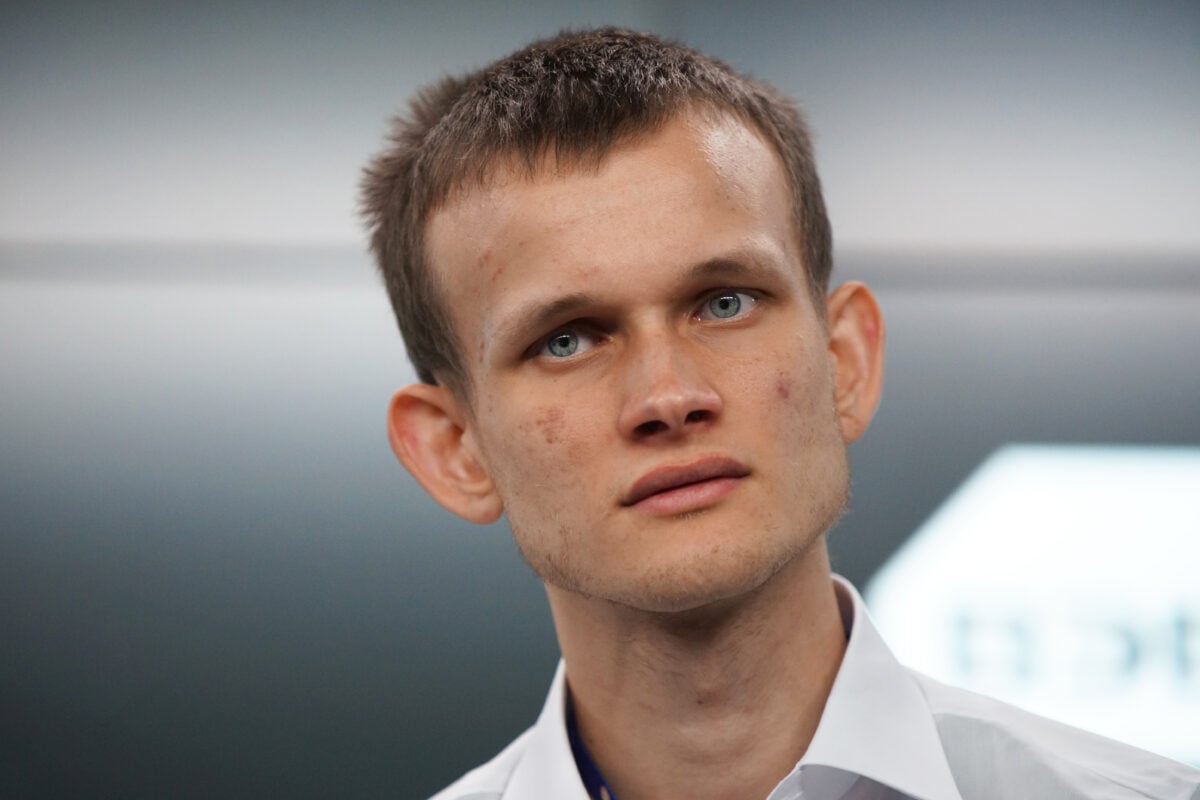TLDR
- Vitalik Buterin calls Peter Thiel “not a cypherpunk” due to their opposing views on surveillance and privacy.
-
Buterin backs Ethereum’s gradual ossification but warns against elite influence on the blockchain.
-
Thiel’s support for surveillance clashes with crypto’s focus on decentralization and privacy.
-
Buterin pushes for wider decentralization within Ethereum and warns against narrowing leadership.
Ethereum co-founder Vitalik Buterin recently took a jab at billionaire investor Peter Thiel, calling him “not a cypherpunk.” Buterin’s remarks came in a post on X (formerly Twitter) and were aimed at exposing the differences between Thiel’s political philosophy and the core principles that underpin crypto. Buterin shared a passage from Thiel’s 2007 essay, “The Straussian Moment,” where Thiel expresses strong support for surveillance and centralized power structures—views that directly conflict with the values of decentralization and privacy championed by the cypherpunk movement.
The essay draws heavily on the philosophy of Leo Strauss, advocating for secrecy, intelligence operations, and centralized global power. Thiel’s stance on these issues stands in stark contrast to the ideals of cypherpunks, who fought for privacy, free access to information, and the decentralization of power. Crypto, which was born out of the cypherpunk movement, embodies these ideals—values that Buterin defended in his critique of Thiel.
Peter Thiel Straussian Ideals vs. Cypherpunk Values
Peter Thiel’s long-standing admiration for Leo Strauss’ political theories has influenced his views on governance and surveillance. Thiel has openly expressed skepticism of democracy and his support for intelligence services as essential to maintaining societal order.
In his essay, he proposed that a global “pax Americana” could be achieved through intelligence coordination among the world’s governments, a perspective that advocates for greater surveillance to protect society.
Reminder that Peter Thiel is, to put it mildly, not a cypherpunk pic.twitter.com/aZQ1AUUCOb
— vitalik.eth (@VitalikButerin) October 3, 2025
However, these views directly contradict the cypherpunk ideology, which values privacy, decentralization, and the protection of individual freedoms. For Thiel, surveillance and secrecy are tools to ensure societal stability, whereas the cypherpunk ethos seeks to empower individuals through decentralized, transparent systems. Buterin’s response is rooted in this fundamental clash: while Thiel’s influence is felt within the crypto space through investments in Ethereum-related firms, his philosophy remains at odds with the foundational principles of the blockchain movement.
Ethereum’s Ossification and the Need for Decentralization
Following his critique of Thiel, Buterin also addressed concerns within the Ethereum community about potential centralization. Some community members suggested that Ethereum should “ossify”—a concept meaning that the protocol should stop evolving after reaching a certain level of maturity to avoid centralization.
Buterin expressed support for gradual ossification, emphasizing that Ethereum should be cautious about making large changes once short-term scaling issues are resolved.
However, Buterin disagreed with the idea of narrowing Ethereum’s leadership or restricting core research and development. He argued that the solution is to expand and balance the leadership of Ethereum’s development team to ensure it remains decentralized and resilient to elite influence. His response reinforces his commitment to keeping Ethereum decentralized and open to wider contributions, without allowing a small group to control its future.
Thiel’s Role in Ethereum and the Debate Over Centralization
Peter Thiel, despite his contrasting views, holds significant influence within the Ethereum ecosystem through investments in Ethereum-related firms. He has a 9.1% stake in BitMine Immersion Technologies (BMNR) and a 7.5% stake in ETHZilla, two major treasury firms involved with Ethereum. While Buterin’s critique of Thiel’s philosophy reflects ideological differences, Thiel’s financial involvement in the Ethereum ecosystem raises concerns about centralization and the influence of large players on the network’s future.
This tension highlights a critical issue within Ethereum and the broader blockchain space: how to balance the involvement of powerful figures while preserving the decentralized ethos that crypto was built upon. Buterin’s warning about elite influence within Ethereum and his push for broader decentralization are calls to protect the network from becoming too centralized, ensuring that the blockchain remains true to its roots.







